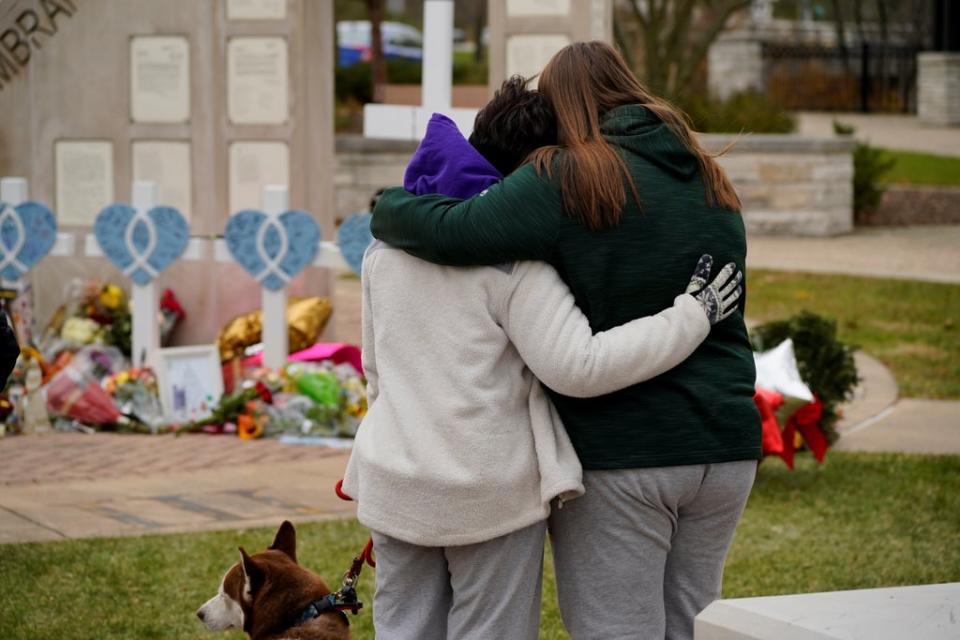Voices: Reporting on the front line in America has become an interminable struggle

The first time I wrote about a tragedy involving a car plowing into people was 15 years ago in Texas when I was a cub reporter. Back then, I had no trouble getting people to talk to me; everyone from firefighters on the scene to witnesses was happy to lend a hand when it came to imparting information and facts.
When I was in Wisconsin last week following the devastating Christmas parade tragedy, however – when suspect Darrell Brooks, 39, drove into a crowd of Waukesha revelers, killing six and injuring dozens – the mood was very different.
As soon as people heard I was a reporter, at least half tried to goad me about politics. They didn’t want to talk about the victims. They wanted to talk about the Second Amendment or challenge me over controversial issues, usually ranting about “the media” in the process.
I always give the same rote answer: I’m not here to share my opinions about anything. I’m here to report what happened, how people feel and what the scene is like in America right now.
That scene on the ground is really, really weird for journalists in 2021, especially those of us who’ve been in this profession for years. I worked abroad for more than a decade, returning to the States in 2017 in the midst of what was essentially a national free-for-all. Before I left, it was not routine for television crews to have armed security with them or to strip off station identifiers from their microphones and equipment.
But that’s routine now. And in both Waukesha and Kenosha – where I visited the previous week for the Rittenhouse trial verdict – there was a palpable sense of us-versus-them from both media and civilians, regardless of anyone’s political affiliation or lack thereof.
I love being a reporter and have many, many friends from our journalist tribe across the world; there’s usually a sense of camaraderie among front-line media and we all share war stories (sometimes literally) when covering major news for various outlets. This month in Wisconsin, however, when I approached any television crew to see if I knew anyone or if they could share logistical tips, I had to go through a security guard first. A photojournalist from one of the best-known stations in the country simply stared me down and, when he eventually spoke, was disarmingly rude. It’s very likely he thought I was approaching with the aim of harassing the team, or pretending to be a fellow reporter so I could troll him online.
Because that type of creepy infiltration has happened, and many journalists are scared – particularly the broadcast teams whose trucks, tripods and cameras make them easy targets. I always announce myself as a journalist to people I’m interviewing, of course, but my notepad and dictaphone don’t immediately announce my profession. I’m not worried about getting accosted on the street. But a lot of others are.
Instead, I’m getting very accustomed to hearing political rants that have nothing to do with what I’m covering – and having to explain what, exactly, my job actually is. Many people I speak with launch into diatribes about Fox and CNN, usually complaining about the pundits brought onto talk shows or opinion artists. I have to explain just that: It’s opinion.
Still, though, they persist. Countless, otherwise lovely people have thrown out the names of where they get their “news” — right-wing or left-wing blogs and sites, saying they’re the “sources” they either love or hate. There is very little belief in an objective news source these days. What that says about our relationship with truth is worrying.
I believe that journalists have a very serious role in and responsibility to society, and I’ve been very saddened – not just in Wisconsin but in my personal life – at the reactions people now have when hearing what I do for a living. I’m not naïve; throughout my career, some people have always balked at giving interviews, and that’s completely understandable. I’ve had doors slammed in my face, phones hung up on me and inhospitable receptions in the past, and it never bothered me because that’s anyone’s prerogative.
But never before have I been so often queried about my own politics, and never before have I seen veteran journalists so scared.
And that’s not just a bad sign for reporters like me. It’s a bad sign for news, truth and democracy – and for America.
Read More
Thanksgiving is a complicated holiday – especially this year
Why I couldn’t bring myself to watch the trial of another white vigilante
Farewell to Jack Dorsey, the only tech bro weirder than Elon Musk
Farewell to Jack Dorsey, the only tech bro weirder than Elon Musk
Opinion: Should we plod on or panic in the face of the new omicron variant?
Editorial: Boris Johnson is failing to take the omicron variant seriously

 money
money 